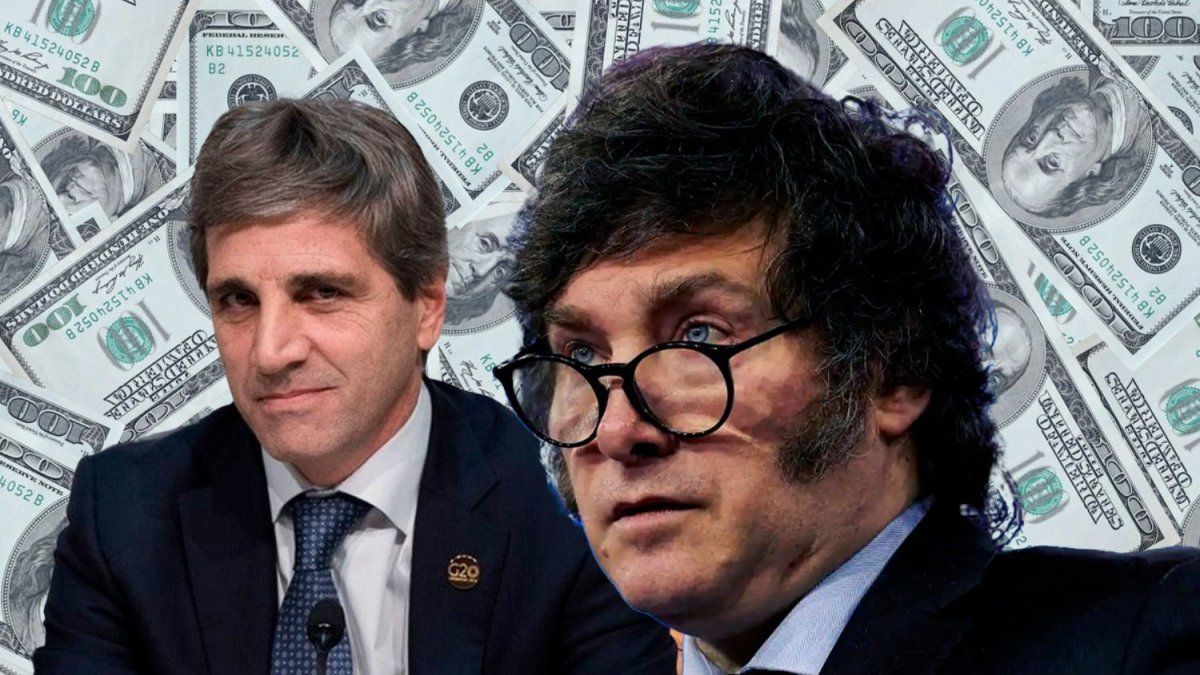While officials such as Caputo declare that “this is not a money laundering” but “a regime change”, the characteristics of the program, together with the rhetoric of impunity that accompanies it, allow to affirm that it is a form of express legalization of black capital. As Basualdo (2010) warns, Argentine economic elites have historically used their power to mold institutionality in their favor. This time, the mold could also be adapted to money of representable origin.
Between libertarian rhetoric and financial indulgence
From the Government it has been argued that the measure seeks to give “freedom” the Argentines to decide on their dollars, placing in line with the anarco-capitalist ideology of Milei. However, The proposal is closer to cynical pragmatism than economic theory. The message “Your dollars, your decision” (Casa Rosada, 2025) hides the true content; An amnesty for those who did not pay any distinction between tax evasion, illicit enrichment or even money laundering.
The global context is also relevant. Various powers – United Kingdom, the United Kingdom, Germany – face an exhaustion of their indebtedness policies and need to repatriate offshore capitals (Zucman, 2015). In that framework, Argentina seems to have been chosen as an experimental laboratory to test exteriorization mechanisms without traceability.
An experiment without legal or institutional framework
There is no sanctioned legislation yet that supports this measure. Informal statements of future officials and promises have been submitted. As he points out Rapaport (2005), Argentine institutional fragility has historically been functional to emergency policies that benefit concentrated groups. The worrying thing is not only the lack of regulations, but the absence of legal guarantees for the eventual participants; The money entered today could be subject to inspection tomorrow if political conditions change.
Minister Caputo said that it is not a relevant macroeconomic measure, but “a regime change.” In that sense, it seeks to generate expectations of capital entry that are not necessarily guaranteed. Neither the Minister nor the President of the BCRA, nor the members of the economic team have repatriated their own funds, which weakens the credibility of the program. As Stiglitz (2019) warns, “trust is an input as important as financial capital in any economic system.”
Legalize without distinguishing, thin line between tax evasion and organized crime
The most serious problem lies in the indistinction between different types of capital not declared. Since justification of origin or establishing thresholds is not required, the possibility of funds from drug trafficking, human trafficking, public corruption or smuggling are incorporated into the formal system, in a segmented way by means of hundreds of “testaferros”, without any resistance, without any resistance. To show remember the contributors “trout” by María Eugenia Vidal in the province of Buenos Aires, under the government of Mauricio Macri. The Court firm a ruling that detected irregularities in the campaign expenses of Cambiemos in 2017 justice found 79 false contributors to the coalition that then ruled the province of Buenos Aires; In that contest, Esteban Bullrich defeated Cristina Kirchner (March 27, 2025)
This does not constitute an exaggeration. As President Milei pointed out, the evaders “are not criminals, they are heroes.” This logic ignores the basic principle of the rule of law; the distinction between legality and illegality. Accept that “every dollar is welcome” implies blurring the boundaries between the citizen he complies with and the one who transgresses.
The modification proposed to the Criminal Tax and Tax Procedure Law, far from “shielding savers,” could open a legal pandora box. The absence of controls, added to the discretion of the application authority (ARCA), consolidates a scheme in which informality becomes state politics. As O’Donnell (1996) warns, the “low intensity citizenship” also manifests itself in the way in which the laws apply (or not) according to the power of those who transgress them.
Economic and reputational consequences
From a financial approach, this unrestricted opening can have serious consequences. First of all, puts at risk the relationship with international organizations that require minimum compliance and financial traceability standards. Secondly, it discourages the income of formal investments, given that no serious investor deposits its capital in a country that institutionalizes money laundering. Finally, It increases legal insecurity, which could cause a new capital escape.
Recent history offers examples. During the 1980s, several Latin American countries – Panama, Paraguay, Nicaragua – enabled bleaching without controls that resulted in the consolidation of criminal economies and authoritarian regimes (González, 2013). Argentina runs the risk of repeating that path, this time with pseudo-libartarios and empty promises.
Conclusion
There is a risk of institutionalizing illegality. The plan announced by Caputo and Milei is not a policy of economic development, nor a gesture of reconciliation with savers. It is an amnesty disguised, designed to benefit a small segment of economic actors and eventually to transnational criminal structures.
The possibility of whitening capitals without identifying its origin is a financial, political and moral time bomb. Far from “repair”, impunity is institutionalized. And in doing so, the already fragile legal architecture of the country weakens. If the measure thrives and extends, Argentina will not only lose legitimacy before the markets, but can enshrine as a new informal fiscal paradise, on the verge of becoming – without euphemisms – into a banana republic.
Director of Esperanza Foundation. Postgraduate professor at UBA and private universities. Master in International Economic Policy, Doctor of Political Science, author of six books.
References
Adorni, M. (2025). Statements at presidential press conference. Casa RosadaBuenos Aires.
Basualdo, E. (2010). Argentine Economic History Studies: From the Colonia to Bicentenario. 21st century editors.
González, M. (2013). Criminal economies in Latin America. Economic Culture Fund.
O’Donnell, G. (1996). Another institutionalization. Magazine Economic development36 (143), 423-453.
Rapaport, M. (2005). State and economy in Argentina of the twentieth century. Economic Culture Fund.
Stiglitz, Je (2019). People, Power, and Profits: Progressive Capitalism for an age of discontent. WW Norton & Company.
Zucman, G. (2015). The Hidden Wealth of Nations: The Scourge of Tax Havens. University of Chicago Press.
Source: Ambito
David William is a talented author who has made a name for himself in the world of writing. He is a professional author who writes on a wide range of topics, from general interest to opinion news. David is currently working as a writer at 24 hours worlds where he brings his unique perspective and in-depth research to his articles, making them both informative and engaging.




